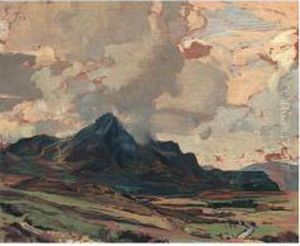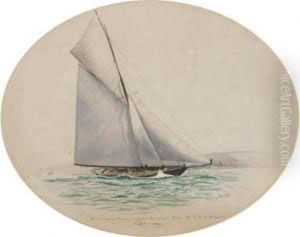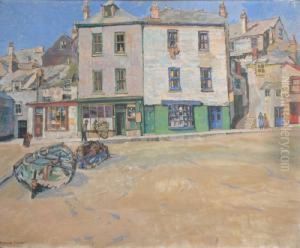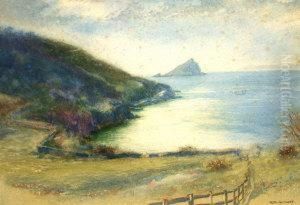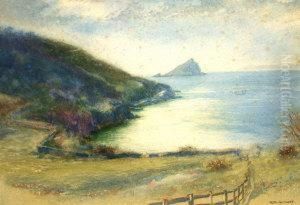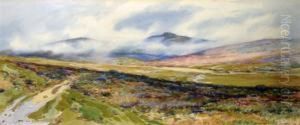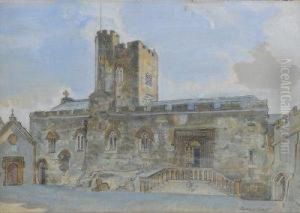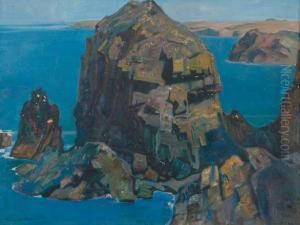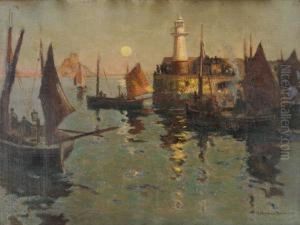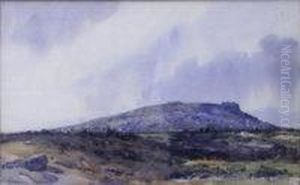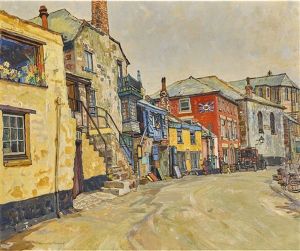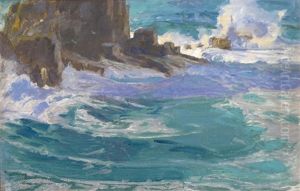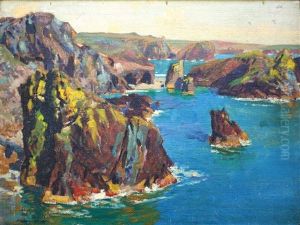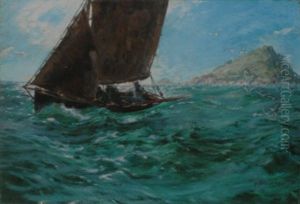Robert Borlase Smart Paintings
Robert Borlase Smart was a British artist known primarily for his work as a landscape and seascape painter. Born on June 3, 1881, in Kingsbridge, Devon, he developed an early interest in art, which led him to pursue studies at the Exeter School of Art. Smart's career and artistic development were significantly influenced by the changing currents in British art during the late 19th and early 20th centuries, as well as by his experiences during World War I, where he served in the Army.
After the war, Smart's work began to reflect a deep appreciation for the rugged landscapes and seascapes of Cornwall, where he eventually settled. He became a prominent figure in the St. Ives artists' community, a hub for British modernism and experimentation in the early 20th century. His paintings from this period are characterized by their vibrant colors, dynamic brushwork, and ability to capture the essence of the Cornish coast and countryside.
Throughout his career, Smart was involved in various local art societies and exhibitions, contributing significantly to the development of the art scene in Cornwall. His work has been exhibited in numerous galleries across the UK, and he played a pivotal role in establishing St. Ives as an important center for British art.
Despite his involvement with modernist circles, Smart's style remained relatively traditional, focusing on the beauty and drama of natural landscapes. His approach was deeply influenced by Impressionism, though he never fully embraced the more radical aspects of modern art. Smart's legacy rests on his ability to convey the unique atmosphere of Cornwall's landscapes and seascapes, making him a key figure in the region's artistic heritage.
Robert Borlase Smart passed away on September 10, 1947, in St. Ives, leaving behind a body of work that continues to be celebrated for its contribution to British landscape painting. His dedication to capturing the spirit of Cornwall has ensured his lasting reputation as one of the area's most beloved artists.
